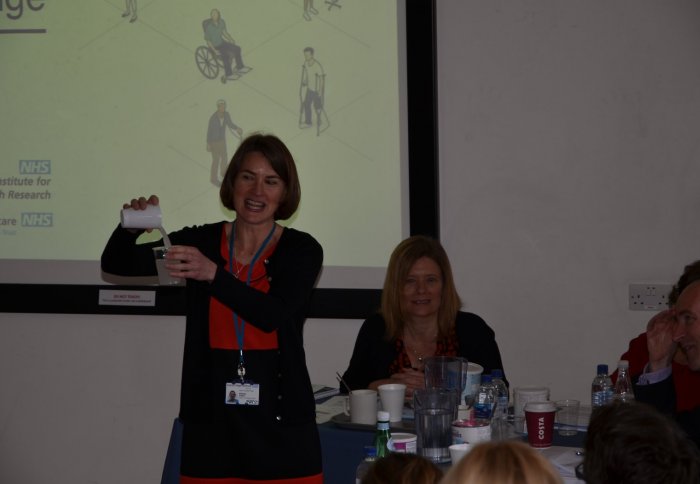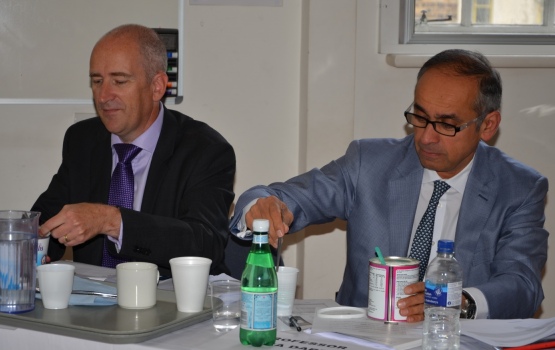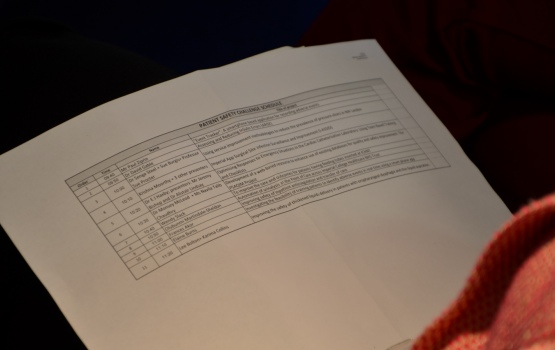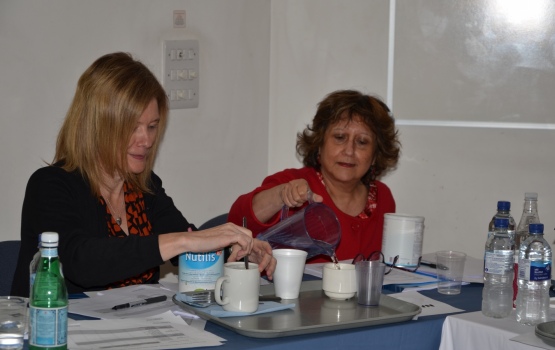Imperial NHS Trust staff rise to the challenge to improve patient safety
by Jo Seed

11 teams of Imperial NHS Trust staff pitched at the Dragon's Den style Patient Safety Challenge for a chance to win up to £30,000 funding.
On 18 June, the NIHR Imperial Patient Safety Translational Research Centre (PSTRC) challenged Imperial College Healthcare staff to submit their applications for projects that are able to improve patient safety and quality of care in our hospitals.
More than 80 applications were received, which were shortlisted to 11 ideas that encompassed healthcare apps, service improvement methodologies, point of care diagnostics and education and training. Up to ten winning projects will be provided with a maximum of £30,000 each and expert support to transform these ideas into innovative products or patient safety intervention within our Trust.
Opening the event, Professor the Lord Ara Darzi, Director of the Institute of Global Health Innovation and the NIHR Imperial PSTRC said: “We hope that this event will be a stimulus not just to the clinicians and nurses, but to any members of staff to come up with ideas to improve patient safety in the NHS. If we are able to find some brilliant projects, there may be an opportunity to disseminate the idea across the network.”
The finalists pitched their ideas to the ‘Dragons’, a panel of prominent patient safety experts, which included Professor the Lord Ara Darzi; Yasmin Alibhai-Brown, journalist and author; Martin Bromiley, pilot and patient safety advocate; and Shona Maxwell, Chief of Staff, Office of the Medical Director, Imperial College Healthcare NHS Trust.
The pitchers represent varied professions within the Trust, including clinicians, nurses, pharmacists, allied health professions and managers, and the ideas that they presented stimulated enthusiastic debates amongst the panel and an audience with a keen interest on patient safety.
Special mentions go to Krishna Moorthy, Clinical Senior Lecturer in Upper Gastrointestinal, who pitched a new app idea for surgical site infection surveillance and improvement. With the help of his team of a junior doctor and nurse, they put up a dynamic act of how clinical scenarios would improve if this app was implemented. The last team to pitch, Lee Bolton, Senior Specialist Speech & Language Therapist, and Karima Collins, Interim Clinical Service Lead, Adult Acute Speech & Language Therapy, presented ways to improve safety of thickened liquids delivery for patients who find it difficult to swallow, and spiced things up for the panel when they provided the ‘Dragons’ with the materials to make Stage 1 syrup consistency.
Closing the event, Shona Maxwell said: “I think it was an excellent event where the standard of presentation was very high. From a Trust perspective, it is great to see the types of projects that we can incorporate into the Trust to improve patient safety.”
Professor the Lord Ara Darzi said: “We’re interested in not just the end product, but the process, the frontline staff working on the delivery of care. I would like to invite anyone out there who we haven’t been able to reach to come forward with your creative ideas to make a significant impact on patient safety. If we have any funding left from this event, we may very well be holding a similar event after summer.”
Winners will be announced in the next few days.
The PSTRC at Imperial is part of the National Institute for Health Research (NIHR).
Article text (excluding photos or graphics) © Imperial College London.
Photos and graphics subject to third party copyright used with permission or © Imperial College London.
Reporter
Jo Seed
Institute of Global Health Innovation




